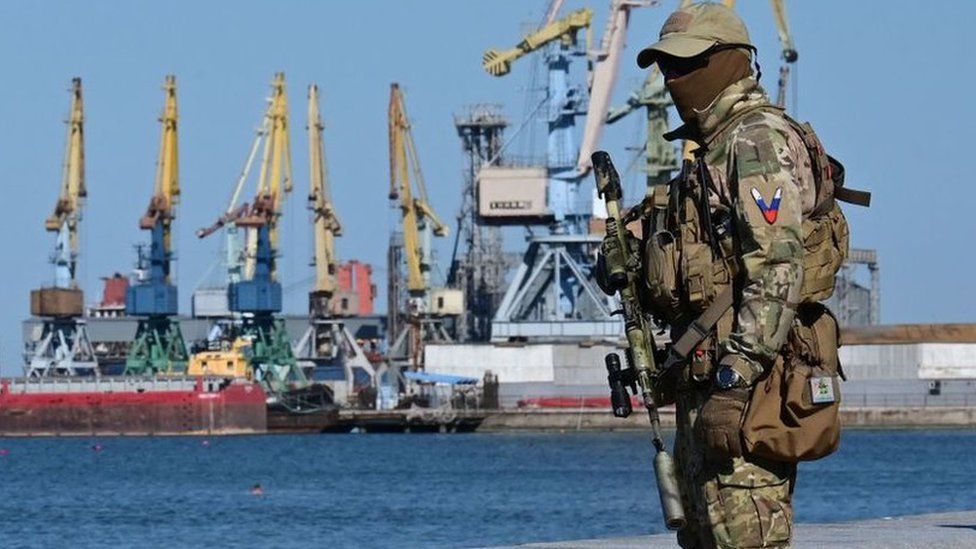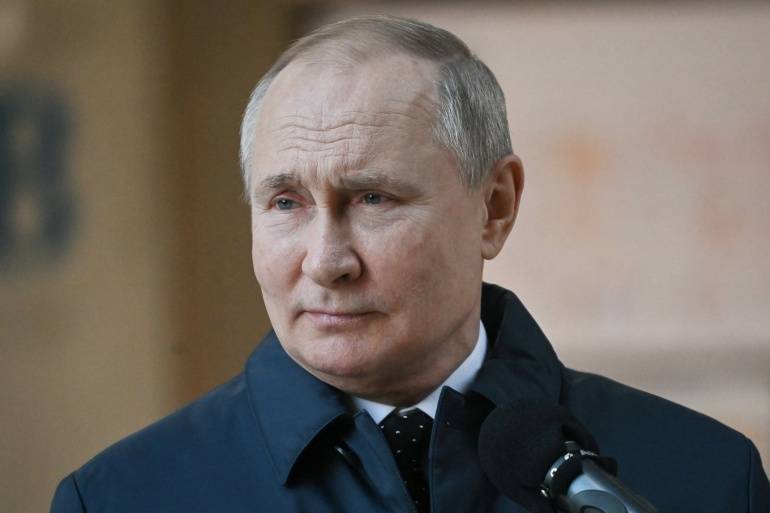Russia's defence ministry has revealed a host of occupations that will be exempted from conscription aimed at boosting its war effort in Ukraine. IT workers, bankers and journalists working for state media will escape the "partial mobilisation" announced by President Vladimir Putin on Wednesday. Around 300,000 citizens face being called up as part of the drive. The move has prompted a rush towards borders as young men attempt to flee to evade the draft. Announcing the exemptions on Friday, Russia defence ministry said employers must compile a list of workers who meet the criteria and submit it to its offices. But it accepted some sectors had to be excluded to "ensure the work of specific high-tech industries, as well as Russia's financial system". Some commentators have observed that the text of the mobilisation decree has been left vague - potentially allowing it to be widened if necessary.
And one paragraph remains entirely classified. Kremlin spokesman Dmitry Peskov said on Friday this referred to the total number of Russians that could be conscripted, which he said could not be disclosed. Earlier, the independent newspaper Novaya Gazeta had reported - citing an unnamed government source - that the redacted section allowed for a call-up of up to a million people, rather than the reported 300,000. Russian men are continuing to try to flee the country to avoid being called up by recruiters for the country's first military mobilisation since World War Two. In the south, miles-long queues of traffic have formed at the border crossing between Russia and Georgia. Some of those heading into the neighbouring country have used bicycles to bypass lines of cars and evade a ban on crossing on foot, with others reporting waits of up to 12 hours.

When asked about the war, one man who did not wish to be named told the BBC he had known it was happening but that, until Mr Putin's declaration of a "partial mobilisation", it had not been his concern. A Russian student, who also did not want to be identified, said that people had woken up. "They opened their eyes and started thinking about where to hide their children. Now people understand what's happening because it affects them directly," he said. Another IT worker told the BBC that he was opposed to the war, but was too scared to speak out against it. "I don't want to risk my life, the life of my family. I don't want to be put in detention," he said. "All I could do was to get Schengen visa. Luckily I got one in May." Georgia is one of the few neighbouring countries that Russians can enter without needing to apply for a visa. Border guards in neighbouring Finland, which shares a 1,300km (800 mile) border with Russia but requires an entry visa, told the BBC that queues had grown at various crossing points.
When asked about the war, one man who did not wish to be named told the BBC he had known it was happening but that, until Mr Putin's declaration of a "partial mobilisation", it had not been his concern. A Russian student, who also did not want to be identified, said that people had woken up. "They opened their eyes and started thinking about where to hide their children. Now people understand what's happening because it affects them directly," he said. Another IT worker told the BBC that he was opposed to the war, but was too scared to speak out against it. "I don't want to risk my life, the life of my family. I don't want to be put in detention," he said. "All I could do was to get Schengen visa. Luckily I got one in May." Georgia is one of the few neighbouring countries that Russians can enter without needing to apply for a visa. Border guards in neighbouring Finland, which shares a 1,300km (800 mile) border with Russia but requires an entry visa, told the BBC that queues had grown at various crossing points.




